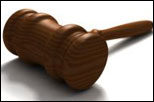No more calls for prisoners on smuggled mobiles

After years of friction, the federal government is finally seeing eye-to-eye with the states, and has given its support for jamming mobile phones in prisons.

Currently mobile phone jamming is illegal under Federal law, but at a meeting of state correction ministers yesterday, Federal Minister for Home Affairs Bob Debus agreed to reconsider the ban.
According to a spokesperson for the NSW Attorney General and Minister for Justice John Hatzistergos — who has made calls in the past for the technology to be legalised for prisons — mobiles in prison can present a danger because prisoners can make unmonitored calls, send video footage out which compromises the security of the compound or even set off a bomb with the devices.
"Prisoners are there because they're criminals," the spokesperson said, adding that previous efforts to keep the devices away from prisons have been unsuccessful: "Criminals are very good and sneaky at getting these things in."
There are various technologies which can be used to stop mobile phone use, such as a high energy pulse that knocks out electronic equipment in range, and swamping the radio frequency.
However, such technologies will interfere with neighbouring buildings, so prisons in urban areas will need to use technology that doesn't block mobile phone calls but detects them instead, allowing prison staff to find and confiscate prisoners' phones.
No technology has been selected for the jamming yet, the spokesperson said.
According to Mark Novosel, telecommunications analyst at IDC, it will be difficult to get jammers which work on all the mobile frequencies used in Australia — there are two GSM frequencies and three 3G frequencies which would need to be covered.
The next step for the government will be to get an exemption from ACMA to be able to use jammers for a trial which will be held in Lithgow, scheduled to be completed by April 2009. Such an exemption was obtained for the jammers used during APEC to protect the US President George Bush.
If the trial is successful, the prisons will begin working with the government and telecommunications industry to change the legislation to make jamming legal in prisons. If all goes well, the technology could be used in prisons within a couple of years.